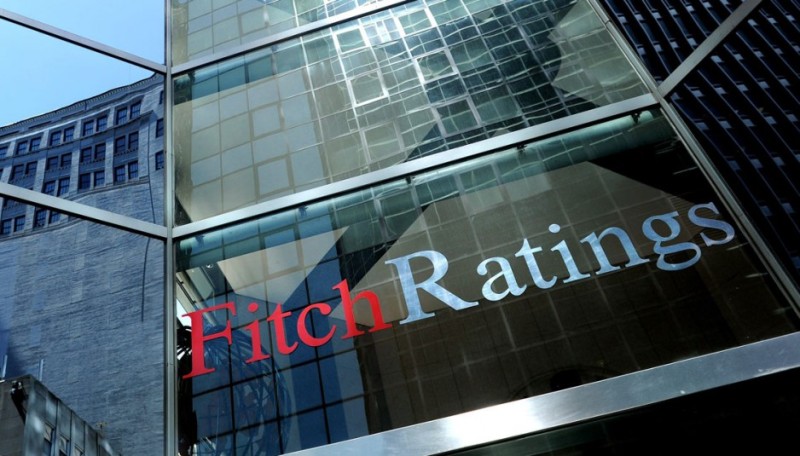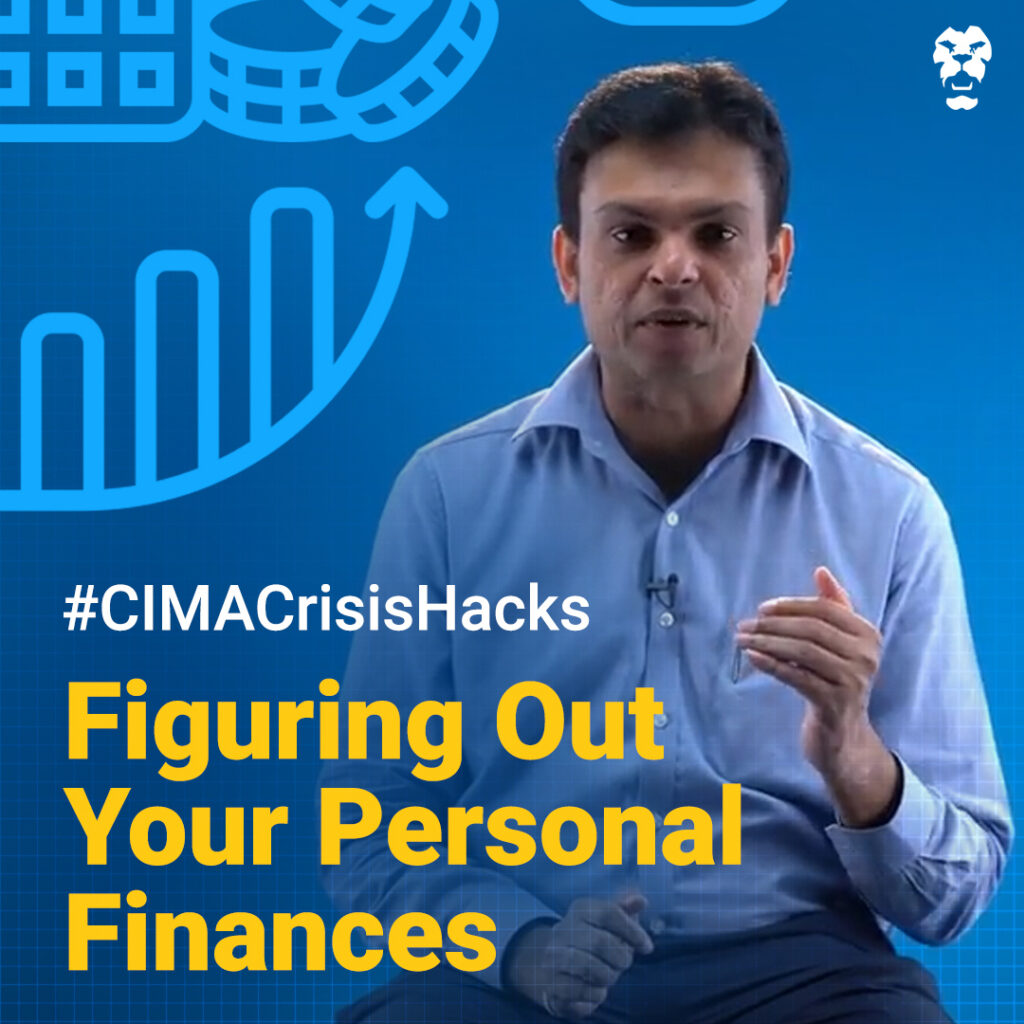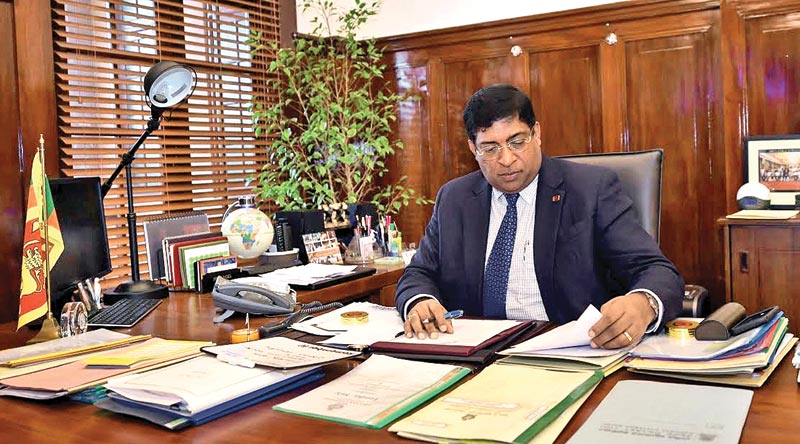
For us Sri Lankans, the Stock Market is akin to Einstein’s Theory of Relativity. Almost everyone has heard about it, but very few actually know what it is. So we at Roar decided to compile an introductory guide to the stock market.
Sri Lanka currently has only one stock exchange/market: The Colombo Stock Exchange (CSE).
Although its origin dates back to the 19th century, the CSE as we know it today, was created in 1985. Automated Trading was introduced in 1997, which then paved the way for online trading and also helped increase regulatory oversight.
What is the stock market?
The Stock Market is a vehicle/market (obviously) which allows people to buy and sell shares. Most stock markets (also known as “Stock Exchanges”) allow people to trade corporate debt.
Why invest in the stock market?
Investing in the stock market is a way of growing your wealth over the long term. It is accessible for everyone and provides an easy way to spread/reduce the negative risks which your investments will be exposed to.
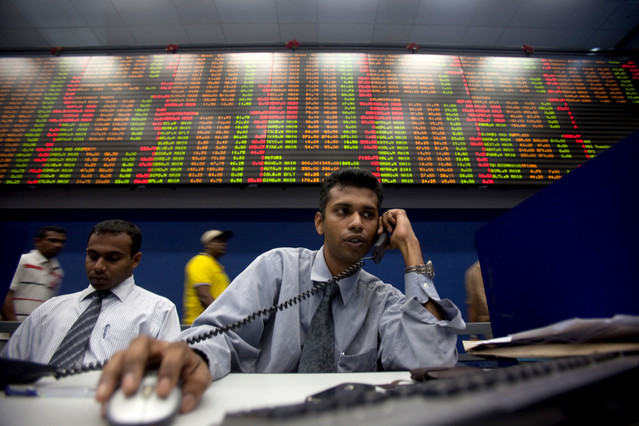
Another day at the Stock Market. Image Credit AdaDerana
Who can invest in the stock market?
Anyone can invest in the stock market. Contrary to popular belief, you don’t need a lot of money to get started. In fact, starting small is one of the best ways to familiarise yourself with the stock market. You can always add to your investments, if you feel like doing so.
Components of the CSE
The CSE is made up of many things. However, given below are a few components which every investor should definitely know about.
Indices
Every stock market usually has one or more “indices” associated with it. In this context, an “Index” is something that tracks the performance of a basket of stocks. Remember that scene in Wolf of Wall Street where something called the “Dow Jones” drops by around 23% in one day, and Jordan Belfort loses his job? This “Dow Jones” which the movie talks about, is also an index. It tracks the performance of 30 major companies in the US, which is its “basket”. And when you hear someone on TV talking about how the “market was up today”, remember that they’re referring to an index.
The CSE has two major indices, the All Share Price Index (ASPI) and the Standard & Poor’s Sri Lanka 20 (S&P SL20).
The ASPI is the CSE’s broadest index. It tracks the share price movements of all 295 companies currently listed on the stock exchange, i.e. the entire market.
The S&P SL20 index was introduced in 2012 and replaced the Milanka Price Index. According to the S&P website:
“The S&P Sri Lanka 20 covers the largest and most liquid stocks from the Sri Lankan equity market” and also “Index constituents are the 20 largest blue chip companies chosen from the universe of all stocks listed on Colombo Stock Exchange.”
Note that the CSE also maintains something called the Total Returns Index (TRI). While the other two indices only track the price movements of shares, the TRI also includes the effect of dividends.
Boards
The CSE has something called a “Board” which is basically a listing platform. Companies are separated mainly by their capital bases. There are two boards on the CSE, the Main Board and the Diri Savi board.
The Main board is for the larger companies while the Diri Savi Board is for the relatively smaller companies. You can probably say that these two boards are the stock market’s equivalent of a school’s First XI and Second XI cricket teams. Usually, there is very little difference except that the Second XI players can be younger and thus, smaller in size.
There is a set of criteria which must be met by a company, if it is to be admitted to any one of these boards.
The criteria for the main board, according to the CSE website, are:
- Stated Capital of not less than Rupees Five Hundred Million (Rs.500, 000,000/-) at the time of listing,
- Net profit after tax for three (3) consecutive years immediately preceding the date of application,
- Positive Net Assets as per the consolidated audited financial statements for the last two (2) financial years immediately preceding the date of application, and,
- A minimum Public Holding of 25% of the total number of shares for which the listing is sought which shall be in the hands of a minimum number of 1,000 public shareholders holding not less than 100 shares each. The Exchange may accept a percentage lower than 25% of the total number of listed shares if the Exchange is satisfied that such lower percentage is sufficient for a liquid market in such shares.
The criteria for the Diri Savi board are as follows:
- Stated Capital of not less than Rupees Hundred Million (Rs.100, 000,000/-) at the time of listing,
- Positive Net Assets as per the consolidated audited financial statements for the financial year immediately preceding the date of application,
- A minimum Public Holding of 10% of the total number of shares for which the listing is sought which shall be in the hands of a minimum number of 100 public shareholders holding not less than 100 shares each, and,
- An operating history of at least one (1) year immediately preceding the date of application.
In addition to the Main Board and the Diri Savi boards, the CSE also has three other boards called the Default Board, Dealing Suspended Board and the Trading Suspended Board. While the last two are pretty self explanatory, the Default Board is for companies which fall foul of the rules imposed by the CSE & the Securities and Exchange Commission of Sri Lanka.
Central Depository Systems (CDS)
The CDS is a subsidiary of the CSE and is responsible for maintaining your accounts. It is also responsible for clearing and settling transactions which take place on the CSE. Think of the CDS as an accountant of sorts.
Types of Shares traded on the CSE
A share represents a unit of ownership in a company. However, there can also be several different types or classes of shares. On the CSE, you will mostly find two main types of shares.
- Ordinary Shares with Voting Rights – The most basic type of them all. Buy these and you will be able to vote on issues which require the approval of a company’s shareholders. You will also be entitled to a dividend, if the company decides to pay one.
- Ordinary Shares without Voting Rights – Same as above, but you don’t get to vote.
There is also another class of shares which are called “Preference Shares”. They get you to the front of the queue come dividend time. Dividends for preference shares though, are fixed at a predetermined rate. However, they’re not very common on the CSE.

Pick wisely and thou shalt profit handsomely. Cartoon via Mark Anderson
The CSE also allows you to invest in “Debentures” which are debt securities issued by companies. If you buy a debenture, you will be paid interest on your investment, by the company.
How to invest
There are two easy ways through which you can invest in the stock market. You don’t need a PhD in finance.
- Through a Stockbroker – The most traditional way to invest in any stock market is to do so through a stockbroker. You will have complete control over your investments. However, as with all things in life, if you don’t know what you’re doing, it can be very easy to burn your fingers.
- Through a Unit Trust – If you’re lazy or don’t want to spend time learning the intricacies of the stock market, you can invest in the stock market through a Unit Trust. A professional portfolio manager will then pool your money with that of other investors, and invest it in the stock market. (Some unit trusts will also invest a portion of the funds in government securities and debentures, depending on their investment objectives)In return for investing your money with proper analysis and whatnot, the unit trust will charge a fee, usually a percentage of the value of your investment. The fee itself may be broken down into smaller fees like a Management Fee, Trustee Fee and Exit fee (usually levied only if you withdraw your money within one year of joining). Some unit trusts also levy a one time fee called a Front End Fee, which is sort of like a joining fee.Now, we know what you’re thinking, but unit trusts aren’t a scam. Unit trusts tend to be structured to compete with traditional brokerage accounts, which means your transaction costs will probably be the same, regardless of which method you choose.
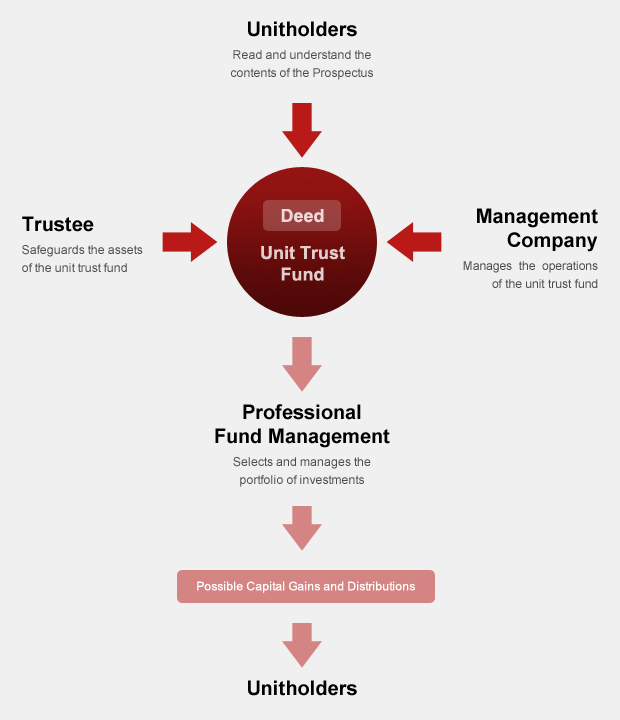
How a unit trust works. Pretty nifty eh? Image Credit: HSBC Singapore
Sri Lankan Unit Trusts are supposed to abide by the Unit Trust Code of 2011, which is a pretty robust piece of regulation. Click here to check it out.
Here are a few Unit Trust Managers in Sri Lanka. Click here for a complete list of all unit trusts in Sri Lanka.
Now that we have piqued your interest, check out this super informative (and way more detailed) guide on how to invest in the CSE, put together by the folks at the CSE itself.
Disclaimer: The information contained in this article is for informational purposes only and should not be considered investment advice. Always make sure to do your own research, talk to your financial advisor and/or seek independent advice where appropriate.



